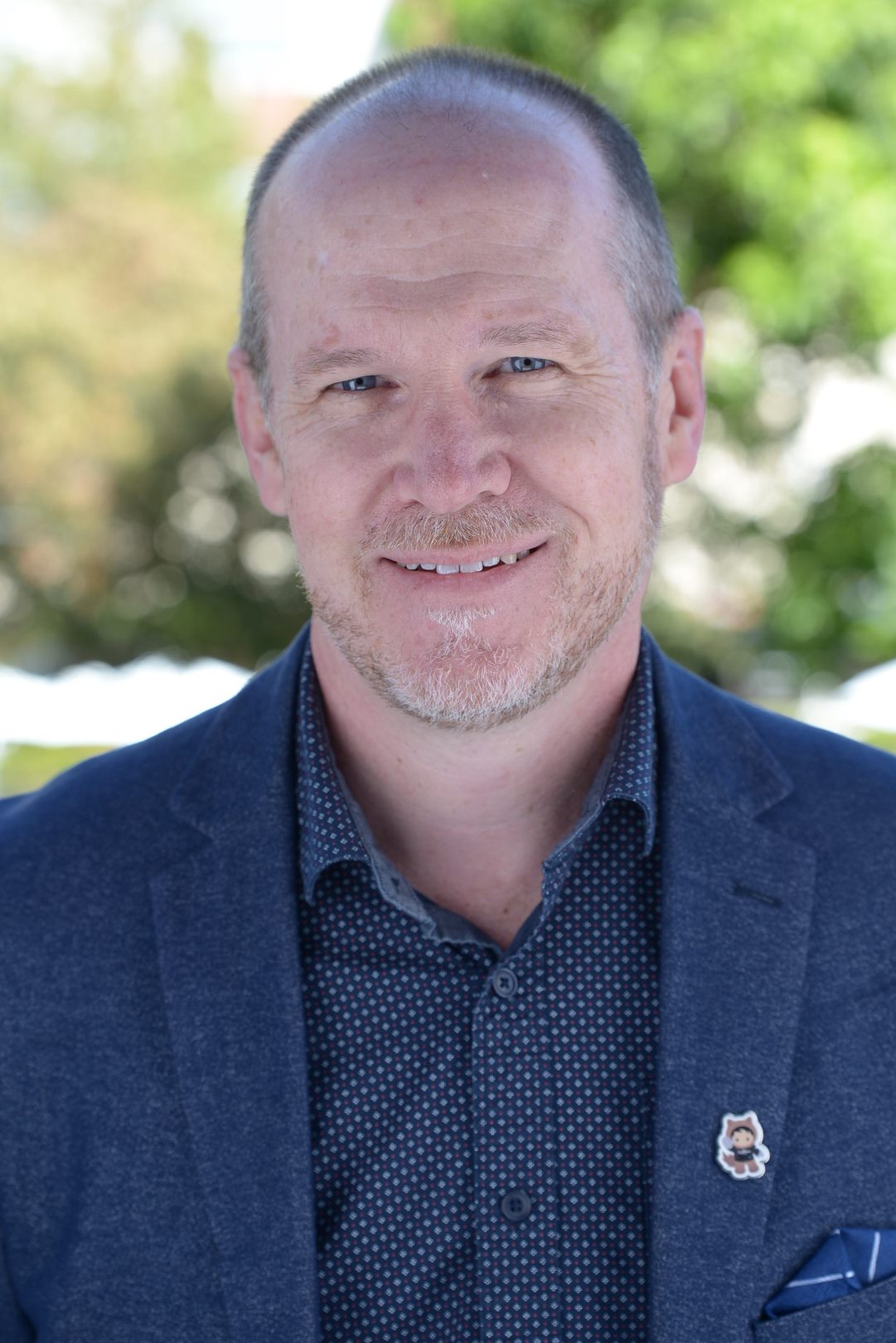Sales as a Career

The actions and activities that lead to the selling of services or goods are called sales. Companies have sales departments that comprise different teams that are based on the product, the service, the target customer, and the region they are selling. The sales staff reach out to those would-be customers who might be interested in the product or service by showing interest by visiting the showroom, website, interacting on social media, or by email.
Sales are providing solutions to the customer’s needs. There are different types of sales that you can be part of like account-based sales, direct sales, eCommerce sales, consultative sales, agency sales, business development sales, B2C sales, B2B Sales, outside sales, and inside sales.
Brian McAuley is a senior sales executive in the IT industry. I sit down with him to get some advice on how to be successful in sales.

Brian, please tell my audience a little about you?
I’m a husband of Jenn for over 23 years, and a father to 3 boys ranging from 12 to 20. I’m active in my community by serving at my local church. I chair the board at the Alzheimer’s Society of Durham Region, and serve as a director of another charity board.
Professionally I’m a technology sales leader with over 20 years of experience who has enjoyed selling industry and technology solutions at the boardroom level across various verticals. I try to maintain a reputation as a collaborative leader who builds trust with clients, partners, and colleagues. I’ve served in various senior business development and management roles at IBM for over 12 years, led teams at Bell Canada, completed the sales turnaround in a software company specializing in healthcare solutions, as well as took a sabbatical from corporate to re-focus a not-for-profit.
What are some of the qualities one needs to have to be great at sales?
First off, you need to be a good listener. Far too many salespeople fill the air with their own talking, but the sales profession is all about understanding needs. Customers need to know that you genuinely care, and have their best interests in mind. Secondly, you have to be good at execution, meaning, you need to have a plan, and be able to be organized and intentional about getting things done. Thirdly, you need to work well with others and recognize how to leverage the strengths of others. I truly believe in the saying “if you want to go fast, go alone but if you want to go far, go together”. Success is never achieved alone.
You worked in the non-profit and then came back to the corporate world. How was that experience?
Making the transition to a different sector was both rewarding and challenging. Taking the assignment was a risky one, but I’m grateful for what I learned, and for what I was able to contribute. There are many transferable skills from one sector to the other, but business disciplines need to be applied differently in the not-for-profit (NFP). There is rigor in business that is not as easily digestible in NFP. In business, it’s all about results and metrics. In NFP, metrics are important, but the mission and relationships take precedence. The velocity with which you can accomplish things in business, can’t always be achieved in the NFP sector – simply because the culture is not the same. Reaching agreement through consensus is vitally more important. The personal rewards received in changing or saving a life can’t be matched. Great experience.
You talk a lot about approaching everything with abundance. Please explain?
We live in a world where, generally, everyone holds the belief that more is better. With that belief, we carry with us, thoughts that repeat in our heads saying “if I just had more X, then life would be easier”. If you had more in your bank account, a bigger house, a better car, more education, less stress, etc. When we look around at others, we begin to feel inadequate. I latched on to a saying years ago that said: “Comparison kills contentment”. On Monday, you can be completely thrilled with your “new to you” 3-year-old used car, until Ken and Barbie drive up next to you at the stoplight in their brand new convertible. Or, you’re so proud of losing five pounds, until the next person loses ten.
Begin or end each day by being thankful for the details of what you’ve been blessed with. Getting started is the hardest, but after a few weeks of writing a couple down each day, you will start to look at your world differently, and realize how much you actually have, without even looking at physical things. You will start to look at relationships as your assets, the gift of encouragement that someone gave you, or the feeling you got for being able to help someone else out in your day. Your abundance mindset will have you starting to look at the world not by what you don’t have, but by what you have and what you can give to others. Oftentimes, we don’t recognize our unique gifts – a special skill, a piece of knowledge, undivided attention, or an encouraging word.
How has being a husband and father changed you?
When you become a husband, you transition from only thinking about your needs, to thinking about the needs of your spouse. When you have children, you transition further again and gain a greater sense of responsibility to not only provide physically but emotionally and spiritually for your whole family. All the investments made in you now need to be imparted to others. Your life is now intertwined with others. Like a new recipe you’re trying for the first time, all the good (and the not so good) come together in a big mixing bowl with the strengths (and weaknesses) of your spouse, to form a new mixture. To make the new recipe work, you need to play with the ingredients. To make it all work, there becomes some give and take, and the ability to say “I’m not perfect, you’re not perfect, but together we are much better”. So, being a father and husband has humbled me and made me more grateful for my family who makes me a better version of myself.
Give my audience some sane financial advice?
I believe that making manageable changes, consistently over time, delivers the best results. Someone once said, “It takes at least 20 years to become an overnight success”. Give away 10% of your income to help others and the charities you are most passionate about. Save 10% of what you make, consistently over your career. But do the first two before you spend on yourself. Often time, we set goals that are too big and fail. Small sacrifices, consistently over time, pay big dividends in the long run. Seek wise counsel. Only invest your money with someone who makes their money not by making a commission on what investments they sell you, but by the returns and the growth in your portfolio. Don’t carry a credit card balance. Buy your first house as early as you can. Learn to deny yourself luxuries until the staples are in place.
Tell me a good sales joke?
Ha – I actually respect your readers too much to share a sales joke. I have yet to hear one that isn’t really corny.
How do you balance faith, finance, family, and food in the 21st century?
You create balance by putting priorities in their place and allowing everything else to fit around them. Priorities are established based on your values. For example, if I told you that my faith was important to me, but I never made it to church because of sports, would you say my priorities were in line with my stated values? Probably not. I balance my life by prioritizing what I value and being intentional through my goals and actions. My faith is important to me, so I make sure I start each day by reading scripture and spending time in prayer. I do it not because anyone says I have to, but because I need that time in order to stay connected to my faith, which I value so much. I value my family, so I spend a lot of time with them. I value financial stability, so I make sure I save, and I don’t overspend, but I make sure I enjoy the fruits of my labor. Food – I don’t know what to say about that. Food for me isn’t important unless it’s shared around a table with those I love.


Great blog keep up the good job
So many good pieces of advice here that too many people in our world today ignore. They chase bigger things trying to impress their neighbours and friends instead of making faith, family, and financial stability priorities.
How wonderful
This is good stuff